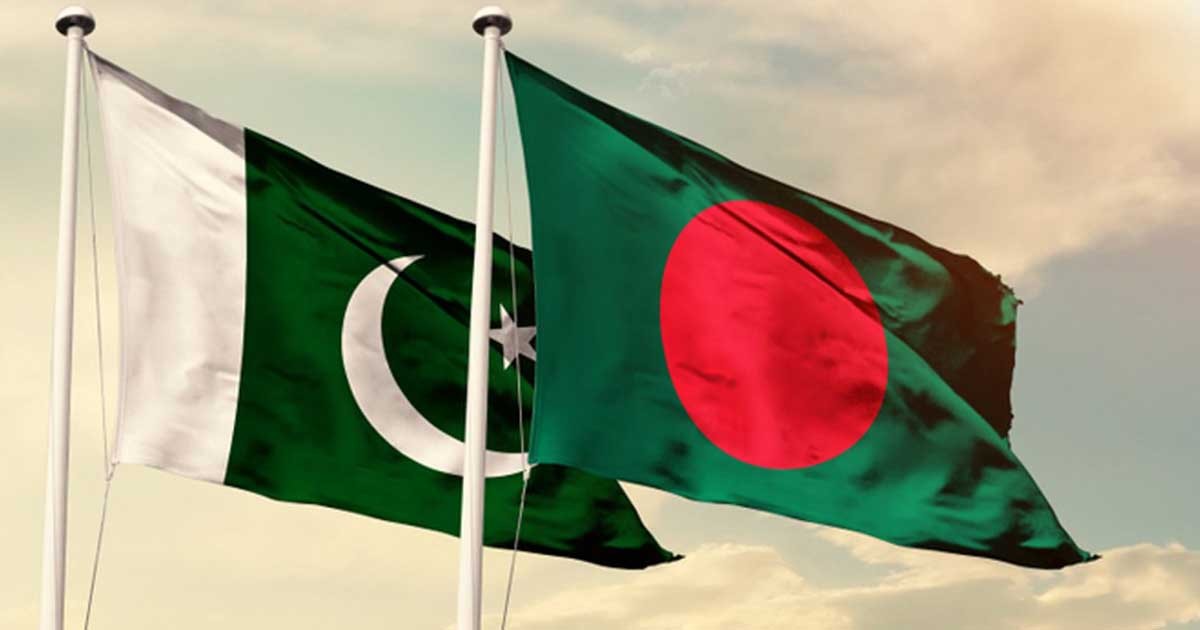
by Hammad Baloch 31 December 2023
The intricate tapestry of Pakistan-Bangladesh relations is a testament to the complexities of international diplomacy, historical narratives, and evolving geopolitical landscapes. This relationship, characterized by periods of collaboration and discord, offers invaluable insights into the challenges and opportunities that define South Asian geopolitics. A retrospective analysis of their interactions reveals a series of nuanced shifts, missed opportunities, and emerging prospects for renewed engagement.
The early 1970s witnessed tentative diplomatic gestures aimed at bridging historical divides. Pakistan’s decision to extend diplomatic recognition to Bangladesh at the Second Islamic Summit in Lahore signaled a willingness to engage constructively. Subsequent visits by Prime Minister Zulfiqar Ali Bhutto to Dhaka hinted at a potential rapprochement, focusing on tangible issues like asset division and repatriation rather than dwelling solely on historical grievances. This period underscored a pragmatic approach, emphasizing mutual interests over past animosities.
The assassination of Sheikh Mujibur Rehman heralded a new phase marked by geopolitical recalibrations and evolving alliances. Pakistan’s prompt acknowledgment of Bangladesh’s new regime and humanitarian aid initiatives during its famine crisis reflected a genuine desire to mend fences. This era saw the formalization of diplomatic ties in 1976, paving the way for enhanced trade, cultural exchanges, and bilateral engagements. Leaders like Zia-ur-Rehman and Khaleda Zia played pivotal roles in fostering a spirit of cooperation, transcending historical animosities and focusing on shared objectives.
The specter of regional geopolitics, particularly India’s influence, loomed large over Pakistan-Bangladesh relations. Bangladesh’s strategic imperatives post-Sheikh Mujibur Rehman’s assassination necessitated a recalibration of regional alliances, with Pakistan emerging as a potential counterweight to Indian dominance. While not the sole determinant, this geopolitical calculus added layers of complexity, influencing diplomatic overtures and strategic engagements between Islamabad and Dhaka. Despite periods of cooperation, the relationship has been punctuated by intermittent tensions and diplomatic spats. Sheikh Hasina’s tenure since 1996 witnessed renewed demands for Pakistan to address historical grievances, complicating efforts to forge a durable partnership. The unearthing of mass graves, global trends toward historical acknowledgment, and controversial remarks by diplomats exacerbated existing fissures, contributing to a climate of mistrust and animosity.
Amidst these challenges, recent diplomatic engagements suggest a nascent willingness to recalibrate relations. High-level meetings between Pakistan’s High Commissioner and Bangladesh’s leadership signal a renewed commitment to mutual respect, economic collaboration, and regional stability. Prime Minister Imran Khan’s overtures underscore a broader recognition of shared interests, offering a potential roadmap for enhanced cooperation and engagement.
The complexities of Pakistan-Bangladesh relations necessitate a balanced, forward-looking approach that acknowledges historical realities while prioritizing mutual interests and shared objectives. While past grievances are undeniably significant, they should not be allowed to stymie efforts to forge a more collaborative, prosperous future. Economic cooperation, regional stability, and cultural exchanges represent tangible avenues for revitalizing the bilateral relationship. Initiatives focusing on trade facilitation, educational partnerships, and cross-border collaborations could serve as catalysts for change, fostering a climate of trust, understanding, and mutual benefit.
In conclusion, while the path ahead may be fraught with challenges, the recent diplomatic overtures between Pakistan and Bangladesh offer a glimmer of hope. By embracing a pragmatic, inclusive approach that transcends historical animosities and focuses on shared objectives, both nations can chart a path toward a more cooperative, stable, and prosperous future. It is incumbent upon leaders from both sides to seize this fleeting opportunity, recognizing that the dividends of cooperation far outweigh the constraints of past misunderstandings. Only through sustained dialogue, mutual respect, and a shared commitment to regional stability can Pakistan and Bangladesh realize their full potential as partners in progress, setting a positive precedent for South Asian cooperation and diplomacy.
